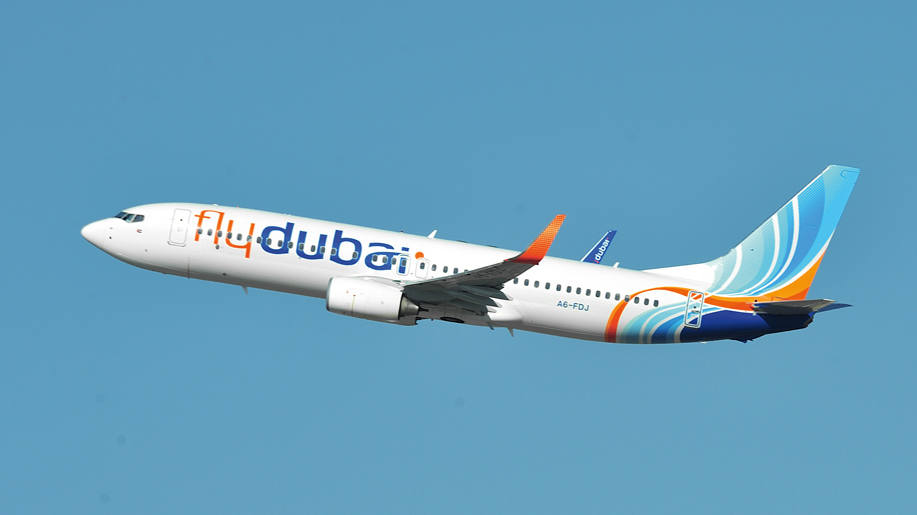The Kingdom of Saudi Arabia’s tourism sector is poised for a significant boost with the announcement of Flydubai’s inaugural international flight to the recently opened Red Sea International Airport (RSI). This exciting development marks a major milestone for the region, fostering greater connectivity and opening the door for international travelers to experience the wonders of the Red Sea.
Unveiling the Red Sea International Airport (RSI)
Officially opened in September 2023, RSI is a state-of-the-art airport designed to cater to the growing tourism industry in the Red Sea region. This eco-conscious facility boasts advanced amenities and infrastructure, ensuring a seamless and comfortable travel experience for passengers. With the launch of Flydubai’s service, RSI will now offer eight flights per week, making it even more accessible for international visitors.

Flydubai Soars into the Red Sea
Flydubai, the leading budget carrier based in Dubai, UAE, will commence twice-weekly services between Dubai International Airport (DXB) and RSI starting April 18, 2024. This strategic move by Flydubai provides a convenient and affordable option for travelers seeking to explore the pristine beaches, vibrant coral reefs, and captivating landscapes of the Red Sea.
The addition of Flydubai’s service aligns perfectly with the ambitions of Red Sea Global (RSG), the developer behind the Red Sea and Amaala projects. RSG aims to position Saudi Arabia as a premier global tourism destination, and Flydubai’s international reach plays a crucial role in achieving this vision.
A Gateway to Paradise: Unveiling the Red Sea Project
The Red Sea Project is a transformative tourism initiative spearheaded by RSG. This ambitious undertaking encompasses the development of luxury resorts, pristine conservation areas, and world-class infrastructure along a stunning 200-kilometer of Saudi Arabia’s Red Sea coastline.
Phase one of the project is slated for completion throughout 2024 and 2025, with the addition of 13 new resorts. Flydubai’s new service arrives at a pivotal time, offering international travelers the chance to be among the first to experience this groundbreaking development.
Benefits for Travelers and the Region
The arrival of Flydubai at RSI presents a multitude of advantages for both travelers and the region:
Enhanced Connectivity: Flydubai’s service provides a convenient and affordable link between Dubai and the Red Sea, opening doors for a wider range of travelers to explore this captivating destination.
Tourism Boost: Increased international access through Flydubai’s flights is expected to significantly boost tourism in the Red Sea region, contributing to economic growth and job creation.
Sustainable Tourism: The Red Sea Project prioritizes sustainable practices, and Flydubai’s commitment to eco-efficiency aligns with this vision. Together, they can create a tourism model that benefits both visitors and the environment.
Resumption of Flights to Al Jouf Airport
In addition to its maiden voyage to RSI, FlyDubai has announced the resumption of flights to Al Jouf airport, further bolstering its presence in the region. This decision is poised to facilitate enhanced connectivity and travel options for passengers, contributing to the overall growth and development of Saudi Arabia’s aviation sector.
Expectations and Projections for RSI
John Pagano, CEO of Red Sea Global, expressed optimism about the prospects of RSI, envisioning it as a gateway to Saudi Arabia’s burgeoning tourism sector. With a target of serving one million guests annually at full capacity, RSI aims to position Saudi Arabia as a premier global tourism destination. Pagano’s vision underscores the transformative impact of RSI on the region’s tourism landscape, with the airport poised to play a pivotal role in driving economic growth and fostering international engagement.
Ownership and Development of RSI
Red Sea International Airport (RSI) is owned by the Saudi wealth fund PIF and is a key component of the broader Red Sea and Amaala development initiatives. This underscores the strategic significance of RSI within the context of Saudi Arabia’s ambitious plans for economic diversification and tourism development. As RSI continues to evolve and expand its operations, it is poised to emerge as a critical node in the region’s transportation infrastructure, facilitating seamless connectivity and fostering economic prosperity.




